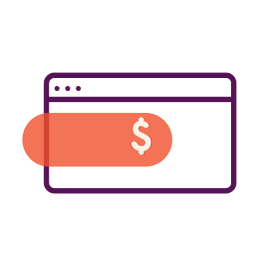Budgeting, accounting and financial planning aren’t often considered the fun part of starting or running a business. But business owners who take the time to create and follow a budget often find the benefits make it worth it.
Here’s how fixed and flexible budgets can help your business reach its goals.
Why You Should Start a Business Budget Today, if You Haven’t Already
Before we dive into the differences between different types of budgets, let’s start with the premise that a business should have a budget. Can you operate without one? Sure? Should you? Probably not.
A 2020 Clutch survey found that half of small business owners surveyed said they don’t have a business budget, with the smallest businesses least likely to have one.
Even the most basic budget is better than none. It forces you to think about what expenses you expect to incur (both variable expenses and fixed expenses) and how much revenue your business needs to generate to reach your goals. A budget helps create a roadmap for where you want your business to go.
Read: 7 Steps to Creating a Small Business Budget
Popular Business Budgeting Methods
The Corporate Finance Institute describes four main types of budgeting for businesses
- Incremental budgeting. Start with last year’s budget and make a percentage adjustment for the current year. This may also be referred to as traditional budgeting.
- Activity-based budgeting. Figure out what the company wants to achieve (for example $xx dollars in sales) then create a budget to support that goal.
- Value-based budgeting. Examine items in the business to determine what value they bring to the company.
- Zero-based budgeting. Start with $0 and work up from there, justifying each expense.
That said, larger businesses will have much different budgeting needs than a very small business. A large business may have a master budget and individual budgets such as cash budget, labor budget, operating budget etc.
A small business will often have one budget with various budget categories that encompasses the various activities of the business.
Quick refresher before we dig into the differences between fixed budget vs flexible budget: fixed expenses don’t change based on production, but variable expenses do.
Understand the Differences Between Fixed Budgets and Flexible Budgets
When you’re creating your budget, you may come across the terms “fixed budget” and “flexible budget.” Understanding the key differences between the two can help you as you develop and track your business budget.
What Is Fixed Budget?
A fixed budget is also called a static budget. Businesses with stable expenses and sales may use this approach to budgeting. Set the budget then track performance against the budget throughout the month, year, or another chosen period.
Fixed Budget Pros and Cons
Pros
- Fairly easy to create
- Predictable budgeted costs easy to track against budget
- Monitor costs and avoid overspending
Cons
- Actual costs may vary, throwing off budget
- Significant in actual expenses fluctuations make budgeting more difficult
- Strict adherence can lead to underinvestment in key areas
When To Use a Fixed Budget
A fixed budget can be helpful for businesses that have predictable production levels and expenditures. Most budgets cover a year, but you can choose any budget period you like (monthly, quarterly or semi-annual, for example). Create your budget then track actual results against budget amounts..
This type of budget is the easiest to create, since your numbers are fixed. But if actual activity changes in key categories (such as fixed costs, variable costs, or production volume), you may quickly deviate from the budget and it may feel like a wasted effort.
When either actual revenue or budgeted items are significantly higher or lower than estimated, you will need to dig in and use a budget variance analysis to figure out what’s off, and what, if anything, you can do about it.
What Is a Flexible Budget?
As the name suggests, a flexible budget is flexible. The budget changes as different activity level changes. Managing cash flow is often an ongoing challenge for small businesses. Flexible budgets adapt to the reality that many small business owners experience: things don’t always go according to plan.
Flexible budgets often tie into actual performance. A common way to set up a flexible budget, for example, is to budget for variable expenses based on level of output.
So, for example, if your business sells more of your product than anticipated, the cost of goods sold as a percentage of sales will vary since you’ll likely need to spend more on raw materials, labor costs, etc.
Flexible Budget Pros and Cons
Pros
- Allows budget to change based on level of activity
- More realistic for small businesses in startup or high growth stages
Cons
- Flexibility may make cost control more challenging
- More time-consuming to create and manage
When To Use a Flexible Budget
A flexible budget will appeal to more small businesses, especially those with unpredictable sales volume or expenses, or those experiencing significant growth (or external factors like inflation).
Many small businesses will find a flexible budget is helpful because it lets them adjust to the reality of business.
But it may take more time and hands-on attention to create and maintain a flexible budget. You’ll need to budget for various scenarios, then revisit the budget and adjust, sometimes on a real-time basis.
How To Choose the Right Budgeting Method for Your Business
Again, if you don’t have any kind of budget for your small business, then your first goal should simply be to create one. A basic fixed budget is often the easiest way to get started. Consider asking your accounting professional for help.
As you gain experience with your budget, you can decide whether you need to move to a flexible budget.
Best Budgeting Software for Small Businesses
At the heart of any budget is the numbers: sales and expenses. For many business owners, their first budget will be created using an Excel spreadsheet or Google Sheets.
Choosing the right accounting software and keeping your bookkeeping up to date can help you track the numbers you need for your budget. And of course it will also make tax time a lot easier. Here are some of the best accounting software programs you can consider.
Keep in mind that accounting software is “rear-view” budgeting. For the most part, you’re recording expenses the business has already spent. If your accounting software doesn’t have advanced budgeting capabilities, you may want to look into standalone business budgeting software like PlanGuru, MoneyGrit. business or Float which you can use with popular accounting software resources.


Have at it! We'd love to hear from you and encourage a lively discussion among our users. Please help us keep our site clean and protect yourself. Refrain from posting overtly promotional content, and avoid disclosing personal information such as bank account or phone numbers.
Reviews Disclosure: The responses below are not provided or commissioned by the credit card, financing and service companies that appear on this site. Responses have not been reviewed, approved or otherwise endorsed by the credit card, financing and service companies and it is not their responsibility to ensure all posts and/or questions are answered.